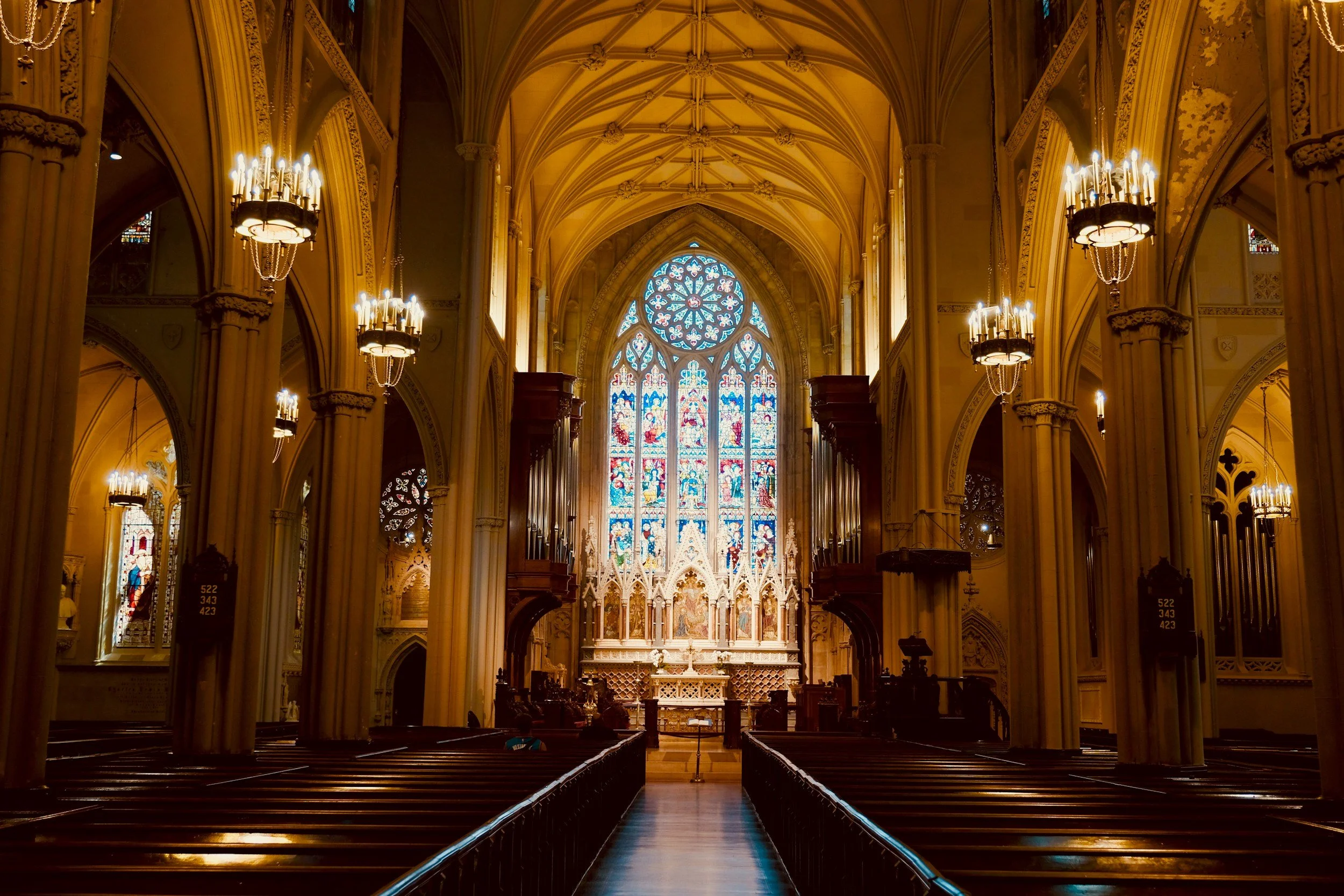Beyond the Monastery: Bringing A Cappella Chant to Your Local Catholic Parish Congregation
Is it possible for a regular Catholic congregation in a typical local parish to sing a cappella as a group? Yes! Many people may believe that chanted a cappella singing only takes place in monasteries where religious communities chant the Liturgy of the Hours on a daily basis. It is true that a cappella chanting is most often found in this type of setting. However, it does not have to be the only place!
What Musicam Sacram Says About Congregational Singing and A Cappella Worship
Musicum Sacram (Instruction on Music in the Liturgy) is a document promulgated by the Second Vatican Council in 1967. It states in Article 16 that, “One cannot find anything more religious and more joyful in sacred celebrations than a whole congregation expressing its faith and devotion in song. Therefore the active participation of the whole people, which is shown in singing, is to be carefully promoted as follows: It should first of all include acclamations, responses to the greetings of the priest and ministers...and also antiphons and psalms…” The document lays out a plan and a hierarchy of which texts of various liturgical celebrations should be sung. Psalm singing by the congregation is listed as being of higher importance than even hymn and canticle singing.
The document goes on to explain all of the different sections of the Mass and gives instructions to encourage congregations to sing. Instrumental accompaniment is rarely mentioned in Musicam Sacram, rather singing by priests, choirs, and cantors are given primary focus, stating that they made lead the congregation “either a capella, or with instrumental accompaniment, as long as the people are not completely excluded from taking part in the singing.”
From this momentous Vatican document, we can see that the goal in liturgical music is to have the congregation sing, starting first in the a cappella format as they respond to the chanting of the prayers by the priest. Instrumental accompaniment and more advanced music is seen as less important. However, in practice, many local parishes depend on the organ or piano, and professional cantors to “support” congregational singing, which often overpowers the voices of shy congregations. What happens when there is no instrumental accompaniment for a Mass celebration?
Take a listen to this brief recording of a typical American local parishing singing the Responsorial Psalm a cappella, led only by the cantor and priest. The cantor and the priest are both using a microphone. You can clearly hear the congregation singing along in the refrain sections, and as is typical, you can hear the people coughing, sneezing, and shuffling their feet. Yet, the refrain is being confidently sung by the people without any instrumental accompaniment.
Growing A Cappella Congregational Participation: From Daily Mass to Sunday Liturgy
How can you encourage this level of congregational singing in your local parish? Start by encouraging the priests to chant “the entrance rites: the greeting of the priest together with the reply of the people,” which is the first step recommended in Musicam Sacram, Article No. 29. From there, the document instructs singing “in the Liturgy of the Word: the acclamations at the Gospel.” All of this singing starts with the priest confidently singing and the congregation answering their part in song a cappella. When people see their priests singing confidently, they typically take that cue and respond without any prompting or help from professional musicians.
Another recommendation is to start teaching the congregation to sing a cappella responses in the daily Mass setting. Daily Mass goers typically know all of the spoken responses off-by-heart, and they are accustomed to praying their congregational parts outloud. With a confident priest chanting the Entrance rite, Gospel acclamations, and Eucharistic songs, most daily Mass goers will take the risk, and sing along. As the daily Mass goers become more confident in their singing, they will carry that confidence to their neighbors when they sing in the pews during the solemn weekend liturgies. In a few months, under the direction of a confident priest singing with the support of music ministers, any local parish congregation can be singing boldly…even a cappella.



